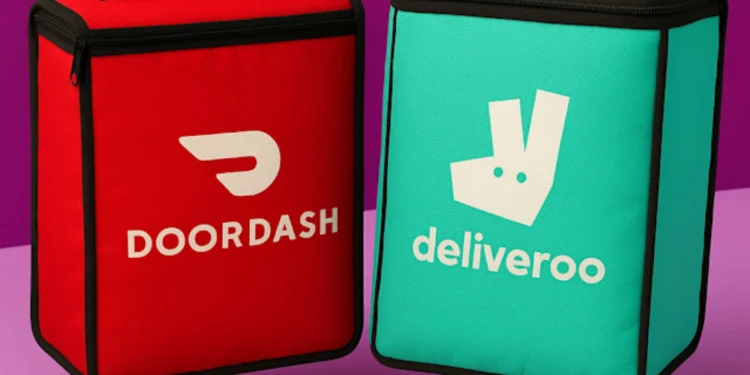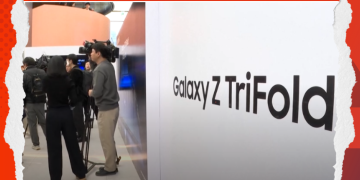The Deal That’s Transforming Food Delivery
In a move that signals major consolidation in the global food delivery market, American giant DoorDash has agreed to acquire British food delivery firm Deliveroo for £2.9 billion ($3.9 billion). The all-cash offer of 180 pence per share represents a substantial 44% premium over Deliveroo’s closing price on April 4, just before the initial offer was made public. This acquisition will create a delivery powerhouse operating across more than 40 countries with access to over 1 billion potential customers.
The food delivery landscape has been ripe for consolidation following years of intense competition, shifting consumer behaviors post-pandemic, and increasing pressure for profitability from investors. This transaction marks a significant milestone in the industry’s maturation and DoorDash’s ambitious global expansion strategy.
Strategic Implications of the £2.9 Billion Deal
DoorDash’s acquisition of Deliveroo comes at a pivotal moment for both companies. For Deliveroo, the deal offers a lifeline after a challenging period as a public company. Since its disappointing London Stock Exchange debut in 2021, when shares plummeted 30% on the first day of trading, Deliveroo has struggled to regain investor confidence. Its share price has remained more than 50% below its initial £3.90 IPO price, making it vulnerable to acquisition.
For DoorDash, this acquisition represents a strategic expansion of its international footprint, following its earlier €7 billion acquisition of Finnish food delivery platform Wolt in 2022. By absorbing Deliveroo’s established operations in the UK and other European markets, DoorDash gains immediate scale and local expertise that would have taken years to develop organically.
Tony Xu, CEO and Co-founder of DoorDash, emphasized the strategic importance of this combination: “We’ll cover more than 40 countries with a combined population of more than 1 billion people, enabling us to provide more local businesses with the tools and technology they need to thrive.” This statement underscores DoorDash’s ambition to create a global delivery infrastructure that extends well beyond restaurant delivery.
Deliveroo’s Rocky Journey as a Public Company
Deliveroo’s path to this acquisition has been anything but smooth. Once celebrated as a British tech success story, the company’s 2021 IPO became one of the London Stock Exchange’s most disappointing debuts. Several factors contributed to this downfall:
- Post-pandemic uncertainty: Deliveroo went public when the UK was still experiencing COVID-19 lockdowns, which had temporarily boosted food delivery demand. Investors questioned whether this growth would sustain once restrictions lifted.
- Competitive pressures: The European food delivery market has been fiercely competitive, with Uber Eats, Just Eat Takeaway, and various local players competing for market share through heavy promotional spending.
- Gig economy challenges: Legal challenges to Deliveroo’s worker classification model created regulatory uncertainty. Questions about the sustainability of the gig economy model raised concerns about future profitability.
- Dual-class share structure: Deliveroo’s governance structure, which gave founder Will Shu enhanced voting rights, deterred some institutional investors.
Despite these challenges, Deliveroo had been making progress on its path to profitability, making it an attractive acquisition target for DoorDash.
DoorDash’s Global Expansion Strategy
The Deliveroo acquisition represents DoorDash’s most ambitious international move yet. While the company has dominated the U.S. market with approximately 65% market share, its global footprint has remained relatively limited compared to competitors like Uber, which operates Uber Eats in numerous countries.
DoorDash’s international expansion timeline shows an accelerating pattern:
- 2015-2021: Primarily focused on building dominance in the U.S. market
- 2019: Expanded to Canada and Australia
- 2022: Acquired Finnish food delivery platform Wolt for €7 billion, gaining access to 23 European countries
- 2025: Announced acquisition of Deliveroo for £2.9 billion, strengthening position in the UK and other key markets
This acquisition pattern suggests that DoorDash is pursuing growth through strategic acquisitions rather than organic expansion in international markets. This approach allows for faster market entry but comes with the challenge of integrating different operational models and technologies.
Market Reaction and Competitive Landscape
The market has responded positively to the acquisition announcement, with Deliveroo shares climbing nearly 2% following the news. Analysts view the deal as a win-win: Deliveroo shareholders receive a substantial premium, while DoorDash secures a strategic asset without engaging in a prolonged price war.
This deal reshapes the competitive landscape in several ways:
- Direct challenge to Uber Eats: The combined DoorDash-Deliveroo entity will be better positioned to compete with Uber’s global food delivery operations.
- Pressure on Just Eat Takeaway: The European delivery giant, which owns Grubhub in the U.S., faces increased competition in its core markets.
- Implications for smaller players: Regional delivery services may find it increasingly difficult to compete with these mega-platforms that can leverage economies of scale.
- Grocery delivery convergence: Both DoorDash and Deliveroo have been expanding into grocery and convenience store deliveries, positioning the combined company to compete with specialized grocery delivery services.
What This Means for Consumers and Restaurants
For consumers, the immediate impact of this acquisition may be limited, as both brands are expected to continue operating separately in the near term. However, longer-term implications could include:
- Potential standardization of delivery fees and service levels across markets
- Enhanced delivery capabilities through combined technology and logistics networks
- More consistent restaurant selection across geographic areas
- Possible integration of subscription services (DoorDash’s DashPass and Deliveroo Plus)
For restaurants and local businesses, the increased scale could bring both opportunities and challenges. The combined platform may offer enhanced visibility and access to a broader customer base. However, the consolidation also reduces alternatives for restaurants dissatisfied with commission rates or platform policies.
Regulatory Hurdles Ahead
Before this deal can be finalized, it faces significant regulatory scrutiny. Food delivery platform consolidation has attracted increasing attention from competition authorities worldwide. The UK’s Competition and Markets Authority (CMA) and the European Commission will likely conduct thorough reviews of the transaction’s impact on competition.
Key regulatory concerns may include:
- Effects on restaurant commission rates in markets where both companies operate
- Impact on delivery worker wages and conditions
- Data collection and privacy implications
- Potential for market dominance in specific geographic areas
DoorDash and Deliveroo will need to demonstrate that their combination enhances rather than restricts competition in affected markets.
Looking Ahead: The Future of Food Delivery
This acquisition signals that the food delivery industry is entering a new phase of maturity and consolidation. After years of rapid growth focused on market share rather than profitability, the industry appears to be prioritizing operational efficiency and sustainable business models.
Future trends likely to shape the industry include:
- Integration of multiple delivery verticals (restaurant, grocery, pharmacy, retail)
- Expansion of advertising and marketing services for merchants
- Development of more sophisticated logistics technology
- Evolution of the labor model as regulatory pressures increase
For investors and industry observers, the key question remains whether these consolidated delivery platforms can achieve consistent profitability while maintaining growth in an increasingly competitive landscape.
Final Thoughts
DoorDash’s acquisition of Deliveroo represents more than just another tech industry merger. It signals a fundamental restructuring of how consumers access goods and services in the digital economy. As these platforms extend beyond food into all forms of local commerce, their influence on urban economies, labor markets, and consumer behavior will only grow.
The success of this acquisition will ultimately depend on how effectively DoorDash can integrate Deliveroo’s operations, navigate regulatory challenges, and execute on the vision of creating a truly global delivery infrastructure that serves both merchants and consumers effectively.
Want to stay updated on this acquisition and other major developments in the food delivery industry? Subscribe to our weekly tech newsletter for expert analysis and breaking news.














